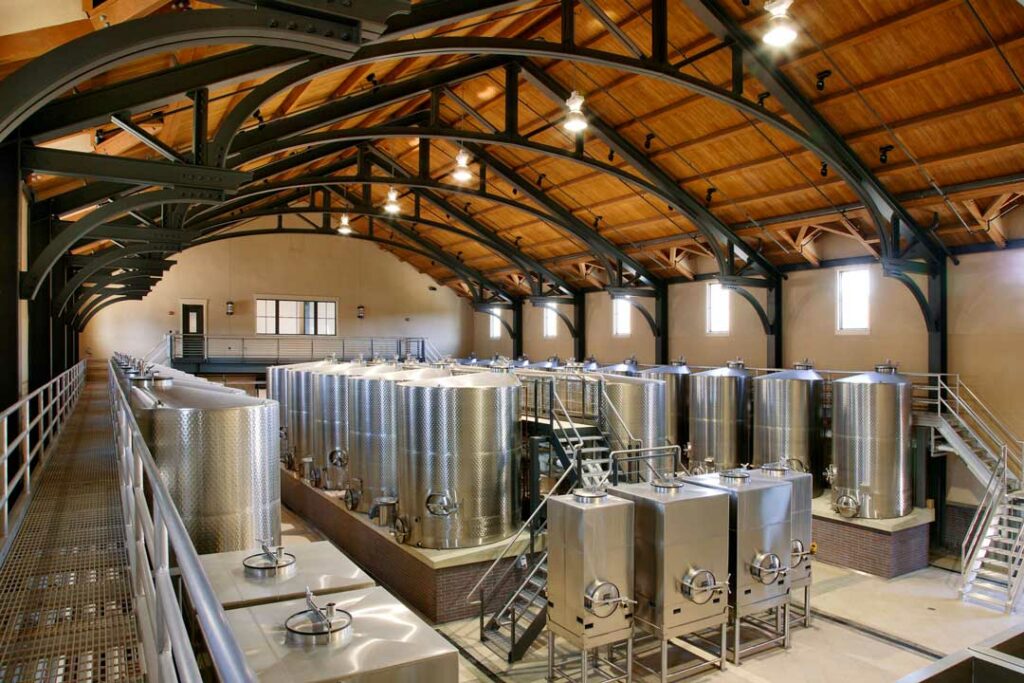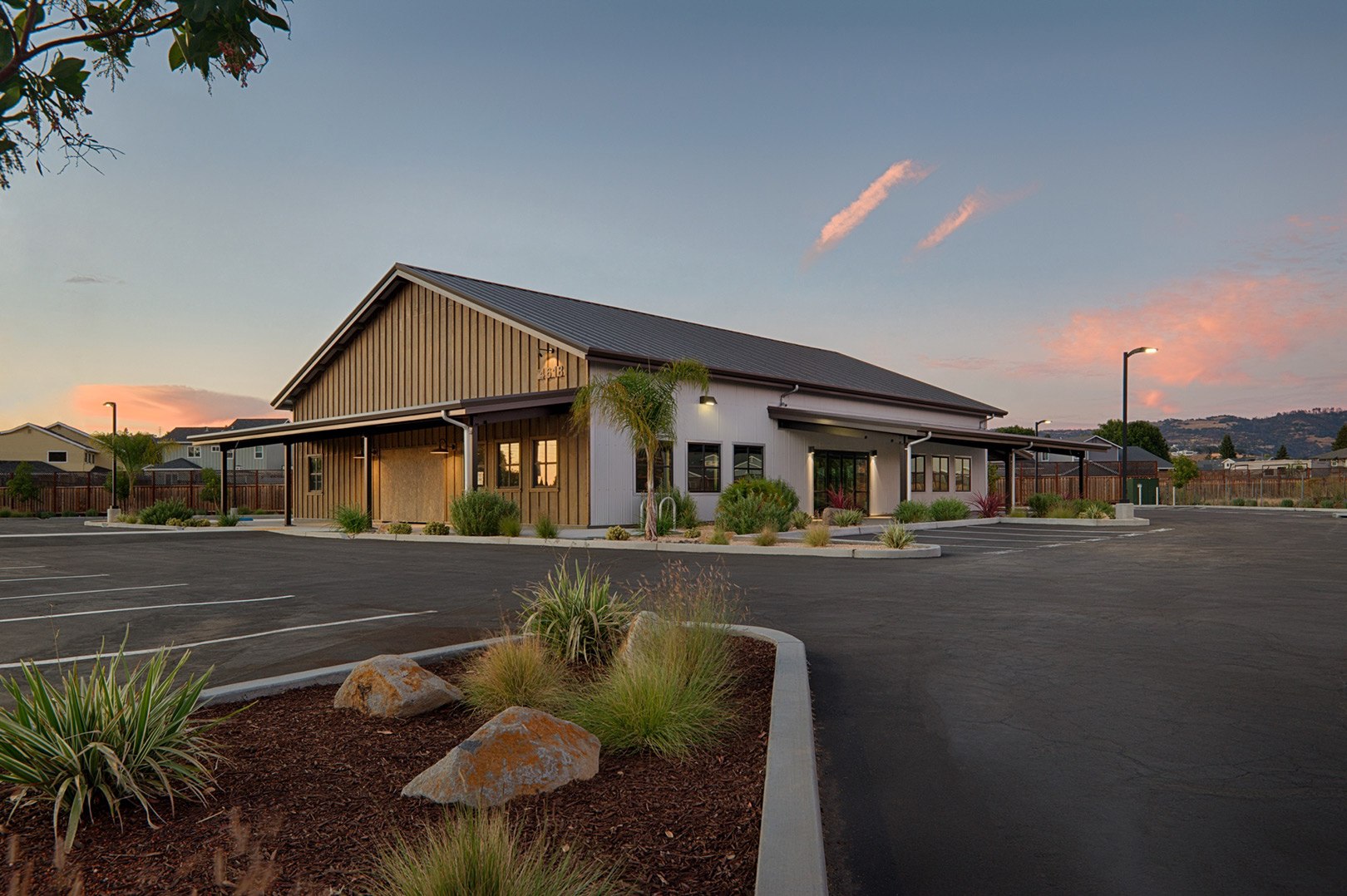Tips to Find the Best Commercial General Contractor
February 22, 2024 Commercial Construction, General ContractorIn this guide, we list considerations to help you find the best general contractor for your commercial construction project.

Finding the right general contractor is paramount to the success of any commercial construction project. This decision can directly impact the project’s quality, timeline, and overall success. From adhering to safety standards to delivering within budget constraints, the commercial contractor you choose will play a pivotal role in every aspect of the construction process. Read on to find expert tips on how to find the best general contractor for any commercial construction project.
With these factors in mind, you can make an informed decision that aligns with your project goals and ensures a smooth and successful construction process from start to finish.
Commercial Construction Experience and Expertise

A facility expansion project completed by FDC.
Vetting a general contractor for commercial construction experience is essential. Relevant experience brings with it a wealth of knowledge and skill to navigate the complexities inherent to large-scale commercial construction projects. An experienced commercial contractor has likely encountered various challenges and learned valuable lessons along the way, which positions them to anticipate issues and implement effective solutions swiftly.
Commercial Construction Portfolio
One of the most telling indicators of a commercial contractor’s experience is their portfolio of past projects. Reviewing their commercial construction portfolio can provide insights into the scale, complexity, and quality of their work.
Industry Expertise
When selecting a general contractor, it’s important to consider the areas of commercial construction they specialize in. Commercial construction encompasses a wide array of project types and industries, each with unique requirements and challenges.
When selecting a general contractor, it’s important to consider the areas of commercial construction they specialize in. Specialized expertise ensures a deeper understanding of industry-specific regulations, compliance standards, and best practices, ultimately contributing to the successful outcome of your project.
Vetting Reputation and References of a Commercial Contractor

Checking the reputation and references of a prospective commercial contractor can provide you with valuable insights into the experiences of past clients, highlighting strengths, weaknesses, and overall satisfaction levels and professionalism.
Reviews and Testimonials
When evaluating a contractor’s reputation, it is advisable to get your feedback from multiple sources. This can include reading online reviews and testimonials, checking ratings on reputable websites, and asking for word-of-mouth recommendations from trusted individuals or businesses. Gaining insights from more than one perspective will allow you to form a well-rounded understanding of the contractor’s reputation and make an informed decision.
Reliable References
References are also a vital part of the consideration process. These are typically provided by the contractor, consisting of past clients who can vouch for their workmanship. Consider asking about the quality of work, adherence to timelines and budgets, communication style, and overall satisfaction to gauge the contractor’s ability to meet your expectations.
Verifying Commercial Contractor Licensing and Insurance

Before working with any general contractor, it’s imperative to verify that they have all the appropriate licenses and insurance for commercial construction. This will ensure they are qualified to perform the necessary tasks and have the necessary protection in case of any accidents or damage during the project.
Licensing
Licensing demonstrates that the contractor has met the required standards and regulations set by the governing authorities. This guarantees that they have the necessary knowledge and skillset to carry out the project effectively and safely. In California, you can visit the Contractors State Licensing Board (CSLB) to verify the licensing of any general contractor.
Insurance
Insurance is equally important as it protects both you and the contractor. In California, all general contractors must have at least two types of insurance: a surety bond and general liability insurance. They may also be required to have workers’ compensation insurance, and depending on the project, builder’s risk insurance as well.
Understanding a General Contractor’s Approach to Project Management

Project management refers to the methods and techniques that a commercial contractor uses to plan, execute, and oversee a construction project. It encompasses various aspects like scheduling, budget allocation, and communication. By understanding a contractor’s approach to project management, you can gain valuable insight into how they plan, organize, and execute projects. This transparency can help foster trust and confidence in their ability to deliver your project successfully.
Schedule Management
A well-planned and efficient timeline ensures that any construction project is completed within the desired timeframe. A meticulous commercial contractor will understand the importance of adhering to a project timeline and will have the necessary expertise to create a realistic, achievable schedule. They will also consider factors like the project’s complexity and resource availability and prepare accordingly to minimize disruptions and delays as much as possible.
Budget Allocation
Effectively allocating funds is essential for making sure a project stays on track and is completed within the agreed-upon budget. A good commercial contractor will have a clear and transparent budgeting process. This includes detailed cost estimation, tracking expenses, and making any needed adjustments throughout the project. They should also be able to provide a breakdown of costs and explain any potential overruns or savings.
Communication Style
Communication is the cornerstone of any commercial construction project’s success. Clear and open communication amongst the team, as well as with you will be essential for keeping everyone involved on the same page.
To get a feel for their communication style, consider asking about how often you can expect to be involved in meetings, and if they use specific online tools to share project updates. It may also be helpful to find out how they handle unexpected issues and ensure they’ll keep you informed promptly, preventing you from being left in the dark.
Sonoma County’s Trusted General Contractor with Over 50 Years of Experience
Finding the best commercial contractor for your project may seem daunting, but it doesn’t have to be. By keeping these considerations in mind, you can navigate the process in confidence and increase your likelihood of finding the best team for your project.
At Facility Development Company (FDC), we maintain a commitment to excellence throughout every commercial construction project. With a dedicated team of seasoned professionals and a track record of surpassing client expectations, we are confident that we can transform your vision into reality. We invite you to contact us online or give us a call at (707)-523-1722 — because your project deserves nothing less than the expertise and passion FDC brings to the table.
